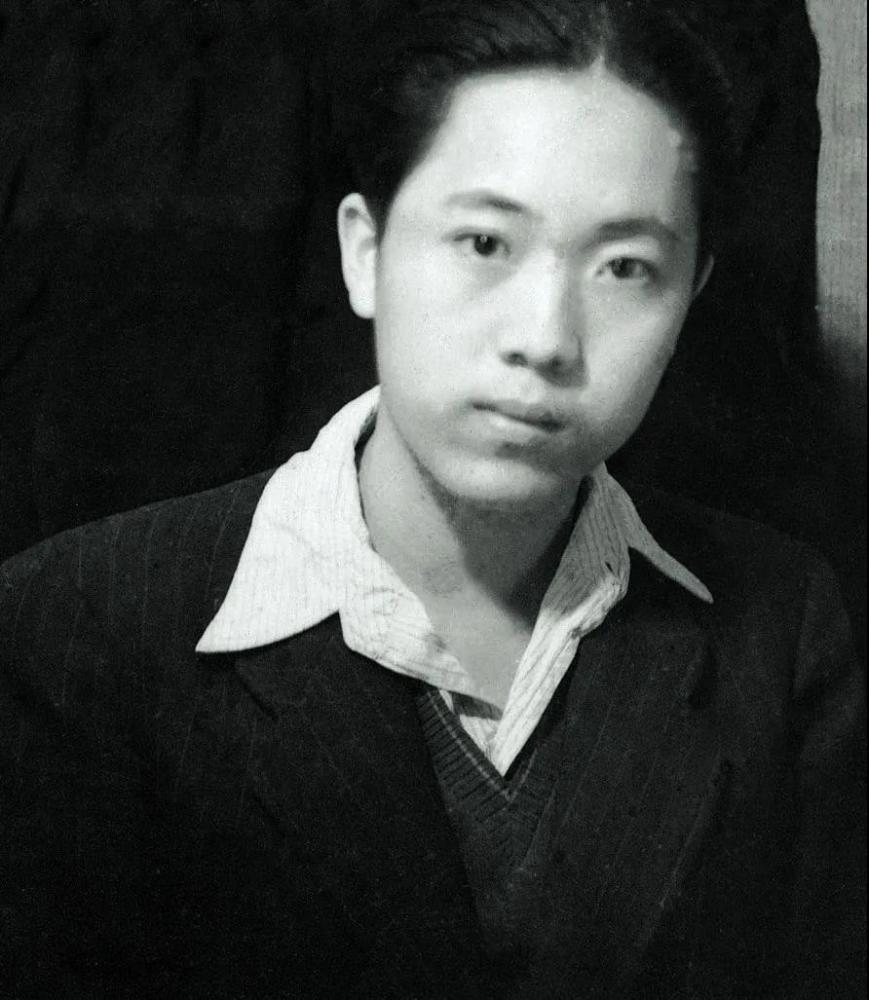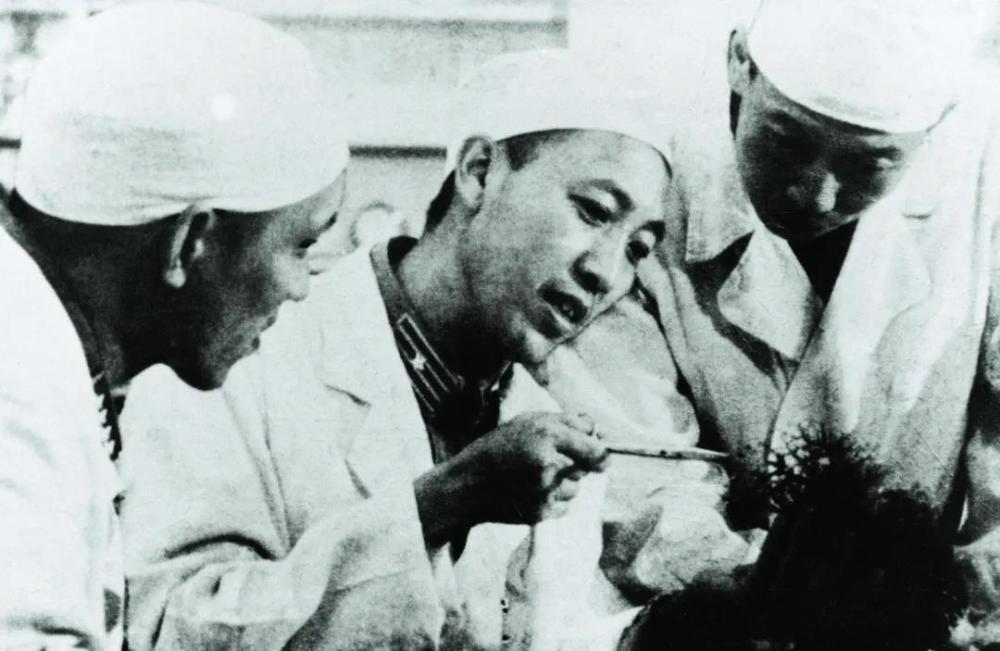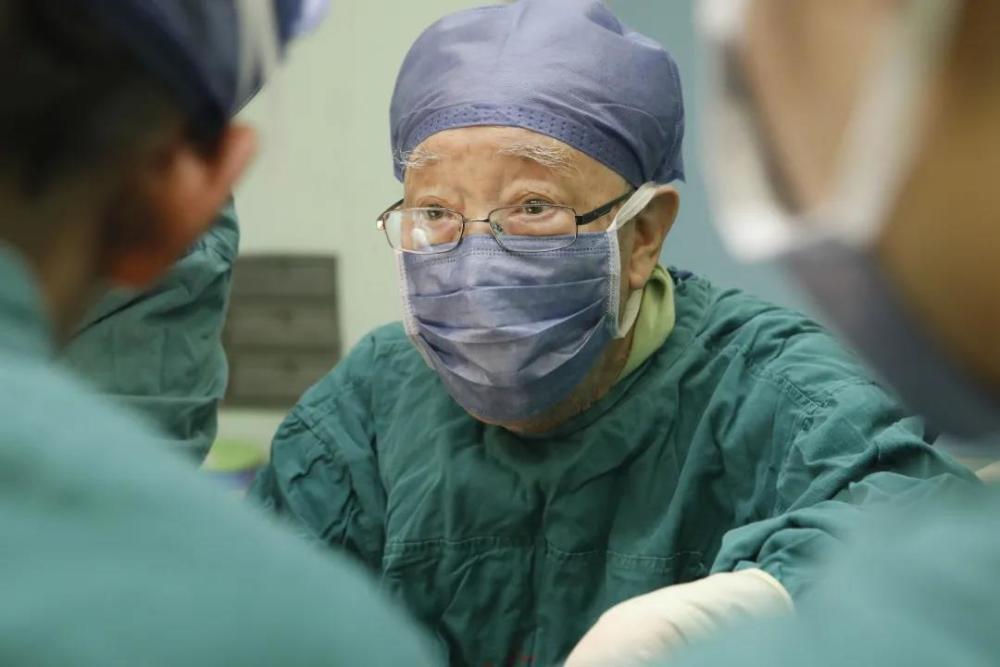By Li Chenyan
On May 22, 2021, Former Vice President of the Chinese PLA Naval Medical University Rear Admiral Wu Mengchao, world-famous Chinese hepatobiliary surgery scientist and surgeon, also an academician at the Chinese Academy of Sciences, passed away in Shanghai at the age of 99.
Known as “Father of Chinese Hepatobiliary Surgery”, Wu Mengchao, during his 70-plus-year medical career, made more than 30 significant medical achievements, laid the theoretical foundation for China’s liver and gallbladder surgery, and operated over 16,000 major liver surgeries, including the country’s first mesohepatectomy. He drastically improved China’s diagnostic accuracy rate, surgical success rate and post-surgery survival rate for liver cancer, which now reached a world-leading level. Liver cancer patients can live another 45 years at most after surgery.
From a youth to a gray-haired old man, Wu has never forgotten his original aspiration – to conquer liver cancer and advance China’s liver surgery to a new height.
Wu was born in the summer of 1922 in a poor family in Minqing County, Fujian Province, and migrated to Malaysia with his family when he was five years old. Although far away from his motherland, he always cherished the dream of becoming a doctor and saving the country. In 1943, he came back to China and was admitted by Tongji University School of Medicine in Shanghai , studying from Qiu Fazu, “father of surgery in China”.

In the early 1950s, China had a high incidence of liver cancer, but prevention against this disease was almost a blank in the country. In an unbelievably primitive research environment, Wu Mengchao, Zhang Xiaohua and Hu Hongkai formed a team in 1958 and began their research on liver surgery.
In 1959, Wu’s team created the classical liver anatomy theory of "five lobes and four segments", laying the theoretical foundation for China’s liver surgery.
In 1960, he performed the country’s first hepatectomy, and invented the “ Normo-thermic intermittent liver inflow occlusion” to stop bleeding during liver surgery.
In 1963, he performed the world’s first mesohepatectomy and pushed China to the forefront of liver and gallbladder surgery in the world.
Just in seven years, Wu and his team achieved significant breakthroughs in basic theoretical research and clinical treatment on liver surgery.
In 2005, as the pioneer and trailblazer of China’s hepatobiliary surgery, Wu Mengchao was awarded the State Preeminent Science and Technology Award, China’s highest academic accolade. When people thought he had reached the peak of his career, Wu continued pioneering in his field. After donating all the 6 million yuan awarded by the state and the military, he, along with six other famed academicians, submitted to China’s State Council a proposal to “study in an integrative way the pathogenesis, prevention and treatment of hepatitis B and liver cancer”, which was listed as a key national sci-tech project.

After that, Wu, well in his eighties, took the lead in creating the national liver cancer science center. He travelled around with his team to choose a site and prepare for the establishment of the center, and witnessed the completion of the 30,000-sq-m modern building in 2017.
Today, the two hospitals named after Wu Mengchao and specialized in hepatobiliary surgery, and Wu’s students working across the country, are continuing to push China forward in this field, carrying on his commitment to serving the people whole-heartedly.
In January 2019, the 97-year-old Wu retired in honor and glory, in response to the national call for reforming the academician system.
For Wu, liver cancer is his lifelong arch rival, operation room is his battlefield, and “keep fighting” is his motto. Over his professional career lasting more than 70 years, he saved tens of thousands of patients from the brink of death; in his 90s, Wu insisted on performing operations if he was not on business trip. This might sound miraculous for others, but he thought it so natural because “I feel unsure if I’m away from the operation room for ten days”.

Up till two or three years before he passed away, Wu still performed at least three operations a week, standing by the operation table for hours at a time – something that would fatigue many young doctors, but he always completed the operations in perfection. In August 2018, the 96-year-old master cut off a 10cm liver tumor for a patient.
“As long as I’m breathing, I’d fight liver cancer. It’d be my greatest satisfaction if I died by the operation table one day,” said Wu Mengchao.













